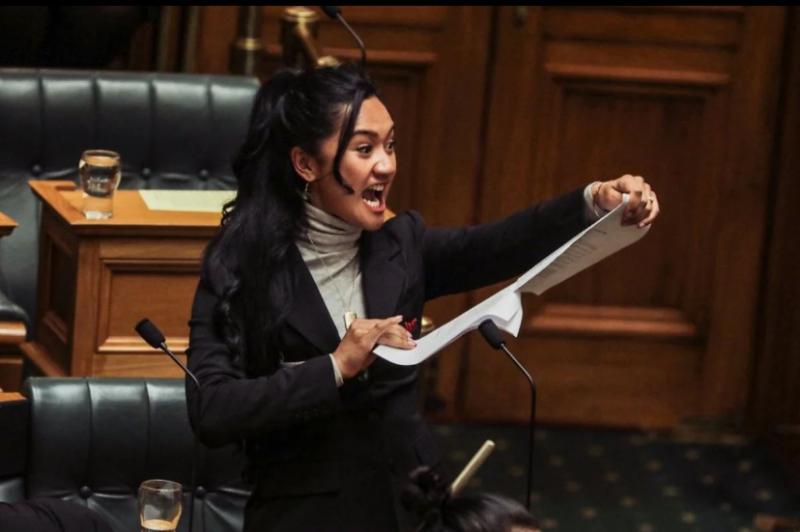New Zealand’s Parliament has overwhelmingly rejected the controversial Treaty Principles Bill, voting it down by 112 votes to 11 during its second reading on Thursday. The bill, which sought to legally redefine the principles of the 1840 Treaty of Waitangi—the nation’s founding document establishing rights between Māori and non-Māori—faced fierce opposition from across New Zealand’s political and social spectrum.
The defeat came just days after a government committee recommended the bill should not proceed, following the largest public consultation response in New Zealand’s parliamentary history. More than 300,000 submissions were received on the proposed legislation, with approximately 90% opposing the measures.
What the Bill Proposed
The Treaty Principles Bill was introduced by the right-wing ACT Party, led by David Seymour, who is himself of Māori descent. The legislation sought to establish three core principles for interpreting the historic treaty:
- That the New Zealand government has the power to govern, and Parliament to make laws
- That the Crown would respect the rights of Māori as they existed when the Treaty was signed in 1840
- That all New Zealanders are equal before the law and entitled to equal protection
This third principle was particularly controversial, as it effectively sought to replace the current understanding of the Treaty—which recognises special obligations to Māori as indigenous people—with a framework that treats all citizens identically regardless of historical context.
Proponents argued the bill would create greater clarity around the Treaty’s principles and promote equality for all New Zealanders. ACT Party leader Seymour has repeatedly criticised what he describes as “special rights and privileges on the basis of race,” arguing that true equality means identical treatment for all citizens.
Widespread Opposition and Public Protest
The bill sparked one of the largest protests in New Zealand’s history, with more than 40,000 people marching on Parliament in November last year. This massive demonstration highlighted the depth of public concern about potential changes to how the Treaty—Te Tiriti o Waitangi in Māori—is interpreted and applied.

Critics argued that the bill would effectively dismantle decades of progress in addressing historical injustices against Māori. At the heart of the opposition was the rejection of the premise that current Treaty-based rights for Māori are “special privileges” rather than necessary remedies for historical wrongs and ongoing inequalities.
Opposition came from across society, with Māori leaders and advocates pointing out that the bill’s emphasis on formal equality ignored the substantial disparities Māori still face. Sharon Hawke, daughter of late Māori activist and MP Joe Hawke, told the select committee the legislation “strips the fabric of where we’ve been heading for in the last three decades at improving our people’s ability to gain education, gain warm housing, gain good health.”
Opposition leader Chris Hipkins directly challenged the notion of “Māori special privilege,” citing the disadvantage Māori continue to experience “on almost every metric—including higher rates of poverty and ill-health and lower life expectancy.” These disparities, opponents argued, demonstrated why Treaty-based remedies remain necessary.
Political Manoeuvring and Coalition Politics
The Treaty Principles Bill had passed its first reading in November only because of a coalition agreement between ACT and the larger National Party, which leads the current government. Prime Minister Christopher Luxon had agreed to support the bill’s first reading as part of a political deal that helped secure his position, despite publicly stating there was “nothing in the bill that he liked.”
Labour opposition leader Chris Hipkins condemned the proposed legislation during parliamentary debate, calling it “a stain on our country.” His sentiment was echoed by Te Pāti Māori MP Hana-Rawhiti Maipi-Clarke, who celebrated that the bill had been “annihilated.”

Green Party co-leader Marama Davidson highlighted how the bill had unintentionally united New Zealanders, stating: “Instead of dividing and conquering, this bill has backfired and united communities across the motu [country] in solidarity for our founding agreement and what it represents.”
Understanding the Treaty of Waitangi
The treaty at the heart of this controversy was signed in 1840 between representatives of the British Crown and more than 500 Māori chiefs. It established the relationship between the British settlers and indigenous Māori, promising tribes broad rights to retain their lands and protect their interests in return for ceding governance to the British.
Crucially, two versions of the document were signed—one in English and one in Māori—with significant differences in translation, particularly regarding what authority the chiefs were ceding. Crown breaches of both versions led to widespread land confiscation and cultural suppression, creating steep disenfranchisement for Māori that continues to manifest in social and economic inequalities today.
Since the 1970s, following a surge in indigenous activism, Treaty considerations have become an increasingly important part of New Zealand law. This has led to efforts to bolster the previously dwindling Māori language and culture, and resulted in billion-dollar settlements for stolen Māori land. These are not viewed as “special privileges” by most New Zealanders, but as necessary reparations for documented historical injustices.
As Māori MP Willie Jackson stated during parliamentary debate, the Treaty “is not about racial privilege or racial superiority. It is and always has been about legal rights Māori have in their contract with the Crown.” This understanding—that Treaty-based measures represent legal obligations rather than discretionary privileges—forms the foundation of current New Zealand policy.
Key Issues Raised by the Public
The select committee identified several key concerns from those who submitted against the bill:
- It was inconsistent with the values of the Treaty itself
- It promoted equality without equity, failing to account for social disparities created by the legacy of colonisation
- There were concerns about compliance with international law regarding indigenous rights
- It could damage New Zealand’s international reputation
By promoting “equality without equity,” the bill would effectively erase recognition of the specific historical experience of Māori and the ongoing consequences of colonisation. Critics argued that true justice requires addressing these historical imbalances through targeted measures, not treating all citizens identically regardless of history.
Those who supported the bill cited a current lack of clarity about the Treaty’s principles and emphasised the importance of formal equality for all citizens. Former National Party finance minister Ruth Richardson told the committee there was a need to address what she called “Treaty overreach,” suggesting that current Treaty-based measures had gone too far. This view, though rejected by the vast majority of submissions, represents the perspective that special provisions for Māori represent unwarranted privileges rather than necessary corrections.
What Happens Next?
Following the bill’s defeat, Prime Minister Luxon, who was not present for the second reading, remarked earlier in the day that it was “time to move on.” However, ACT Party leader David Seymour has vowed to continue campaigning on the issue, writing on social media: “I believe this Bill or something like it will pass one day because there are not good arguments against its contents.”
Despite the defeat of this particular legislation, scrutiny of Māori rights in New Zealand law continues. Under the coalition agreement with ACT, Luxon’s government has already enacted a measure directing public agencies to stop targeting policies specifically to redress Māori inequities. The government has also agreed to consider replacing or repealing mentions of the Treaty of Waitangi throughout most New Zealand laws.
A Nation Still Grappling with Its History
The rejection of the Treaty Principles Bill represents a significant moment in New Zealand’s ongoing conversation about its colonial past and the place of indigenous Māori in contemporary society. The overwhelming parliamentary opposition to the bill—with ACT’s 11 MPs the only ones voting in favour—suggests there remains strong political support for the current approach to Treaty interpretation.
At its core, this debate reveals a fundamental disagreement about whether Treaty-based measures for Māori represent unfair “special privileges” (as ACT argues) or necessary legal remedies for historical injustices and ongoing inequalities (as the parliamentary majority believes). With more than 90% of public submissions opposing the bill, it appears most New Zealanders align with the latter view.
As parliamentarians and the public celebrated the bill’s defeat with applause and the singing of a traditional Māori waiata (song), the moment highlighted how central the Treaty of Waitangi remains to New Zealand’s national identity. However, with Seymour and the ACT Party continuing to pursue related policy changes, the debate over the Treaty’s interpretation and application is far from settled.
For now, though, opponents of the bill can celebrate a victory that demonstrates the effectiveness of public mobilisation and highlights the strong support for maintaining the current understanding of New Zealand’s founding document and the rights it establishes for Māori as the country’s indigenous people.
